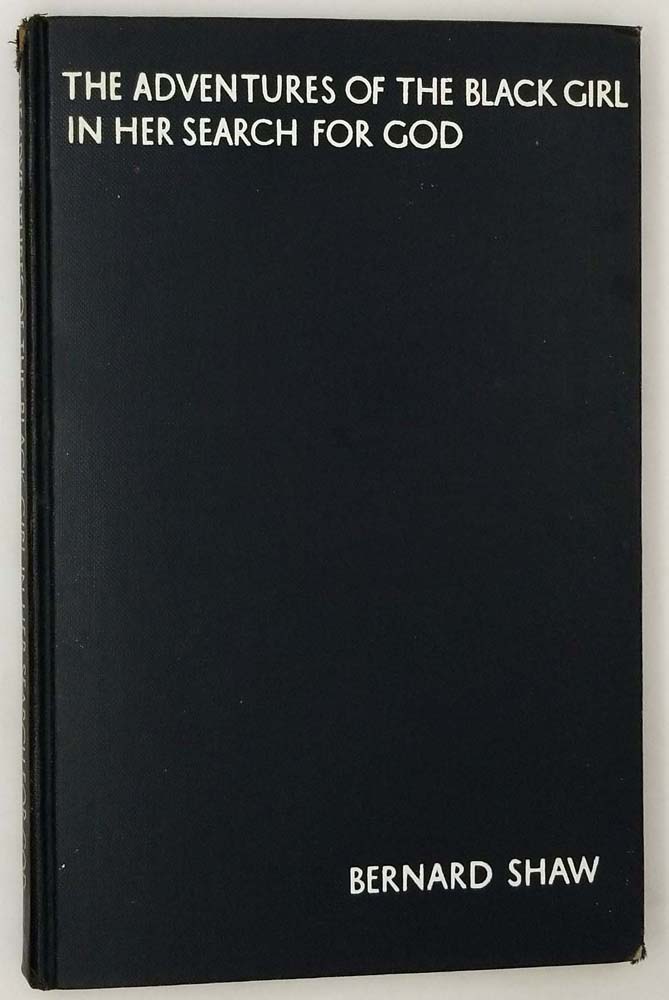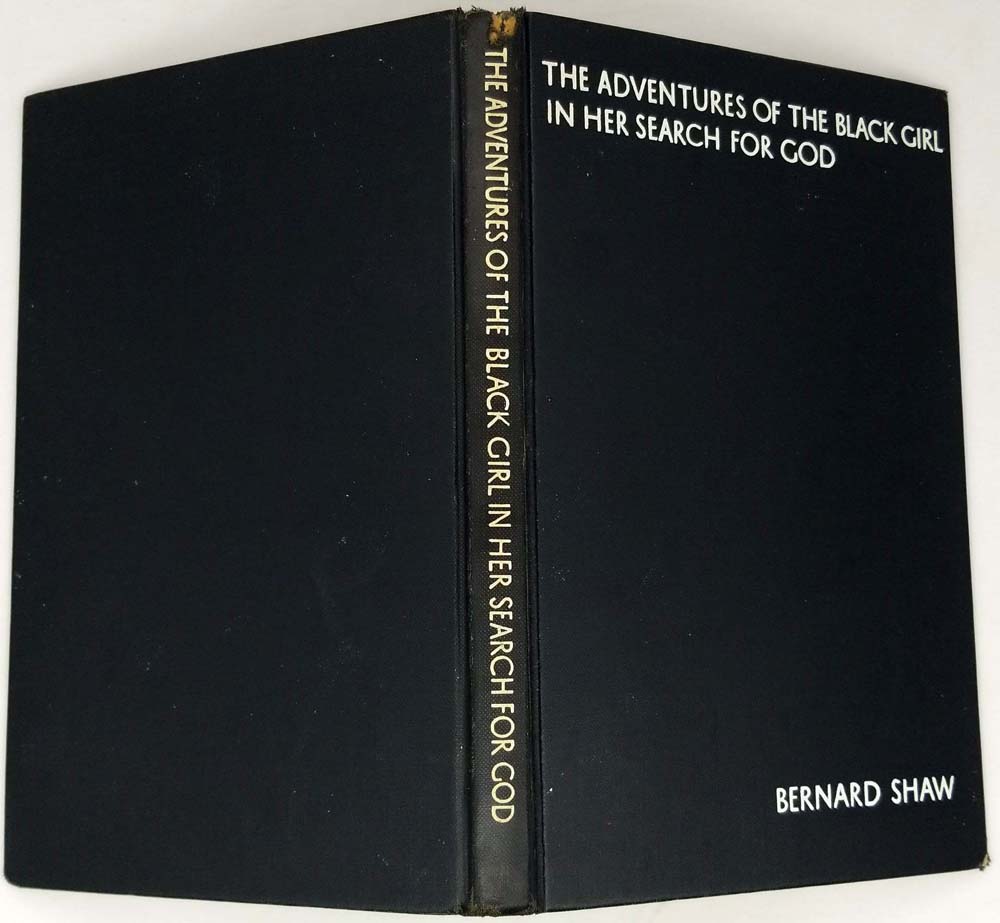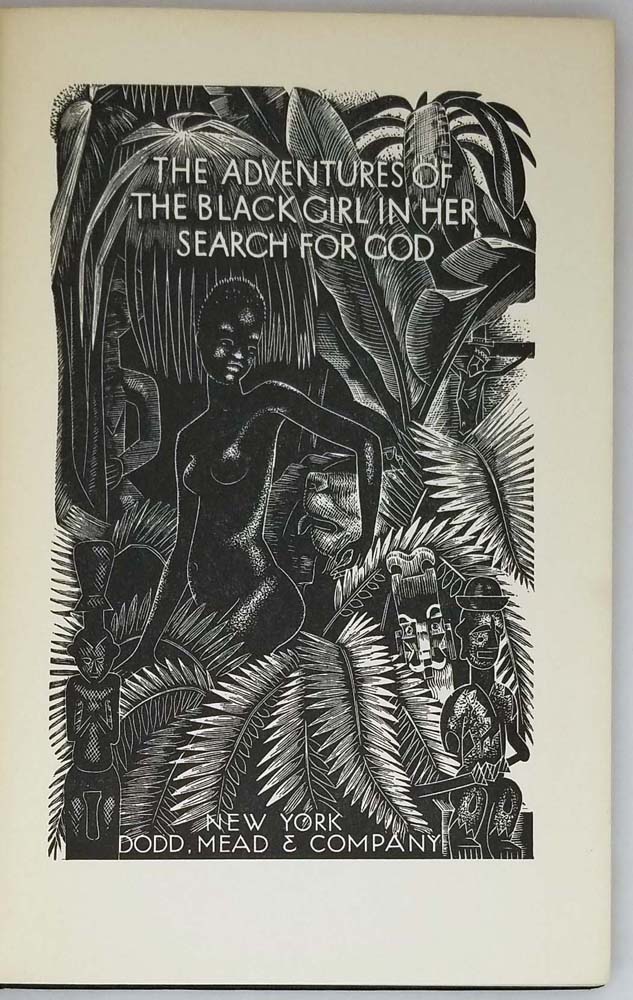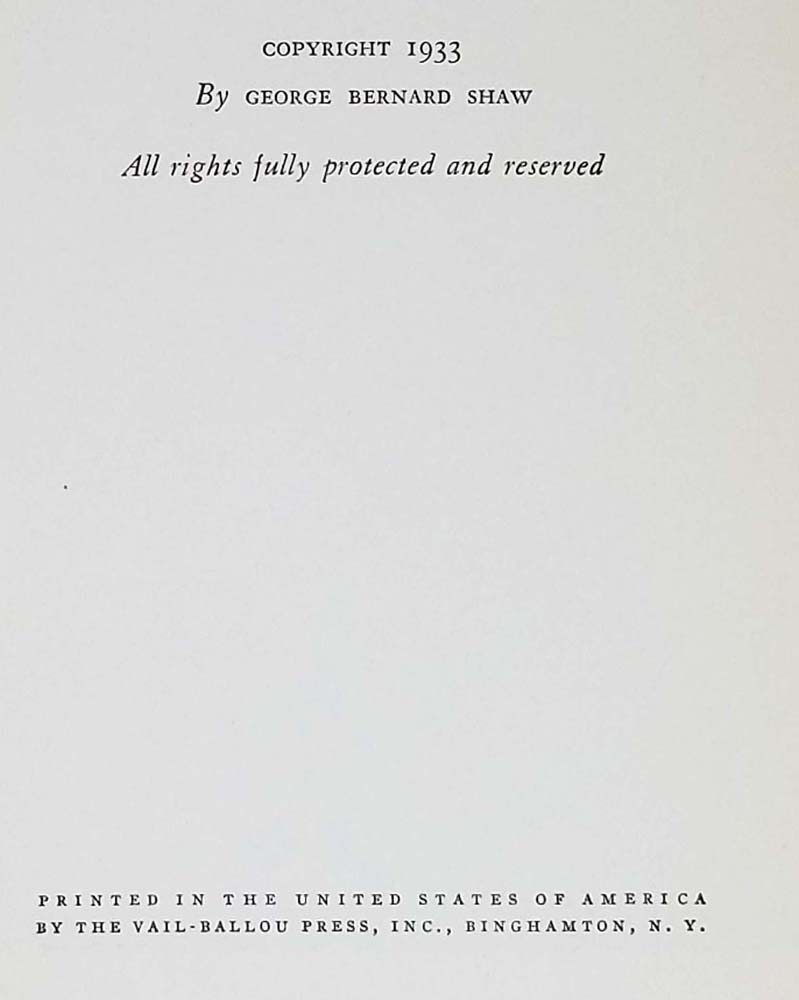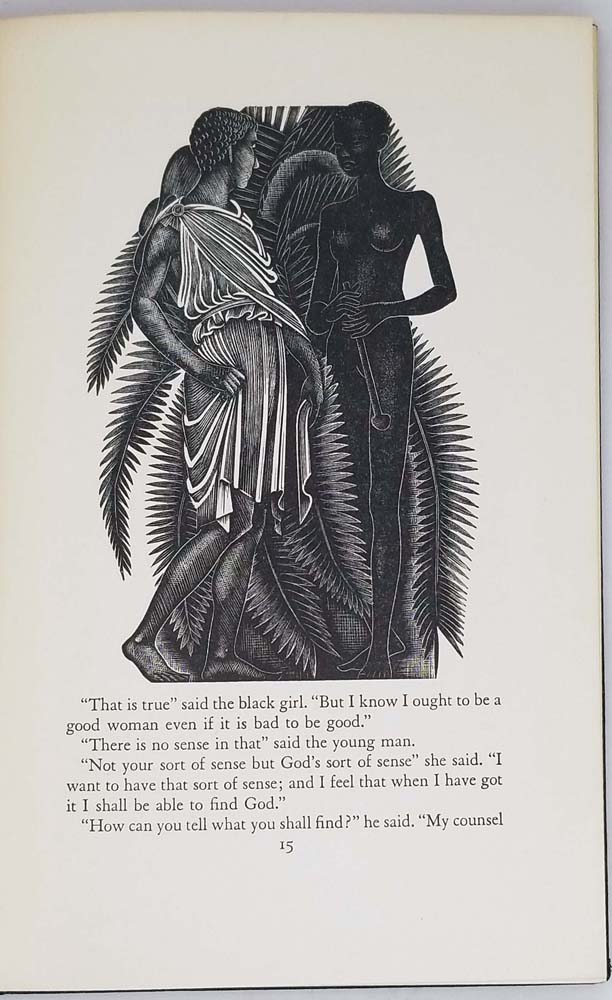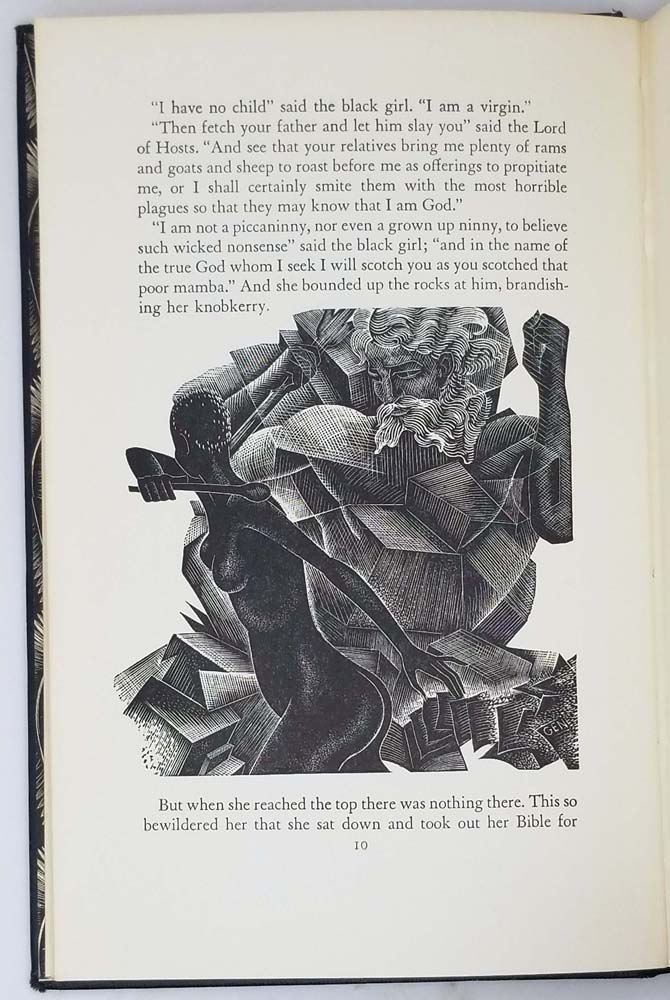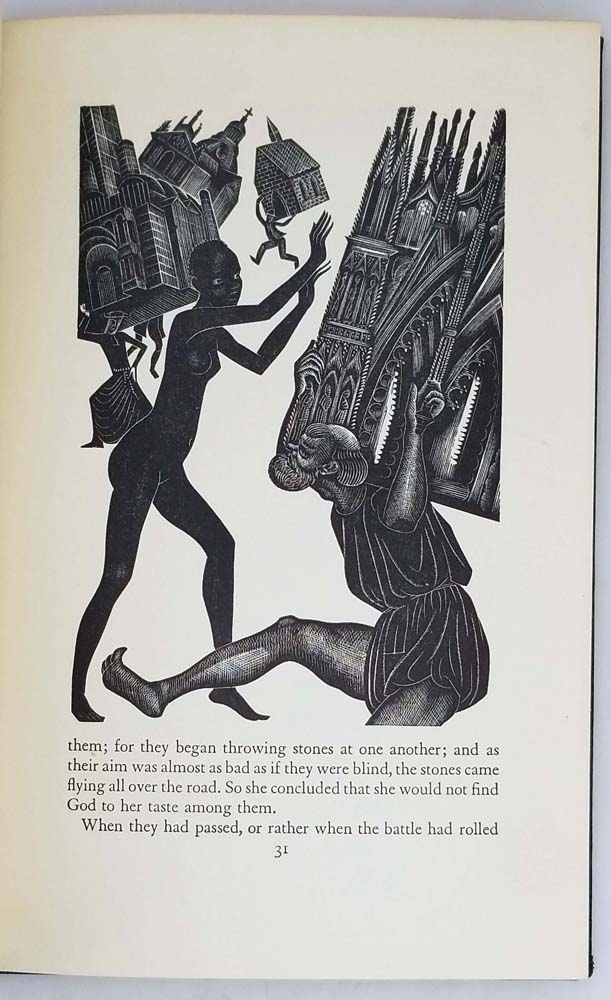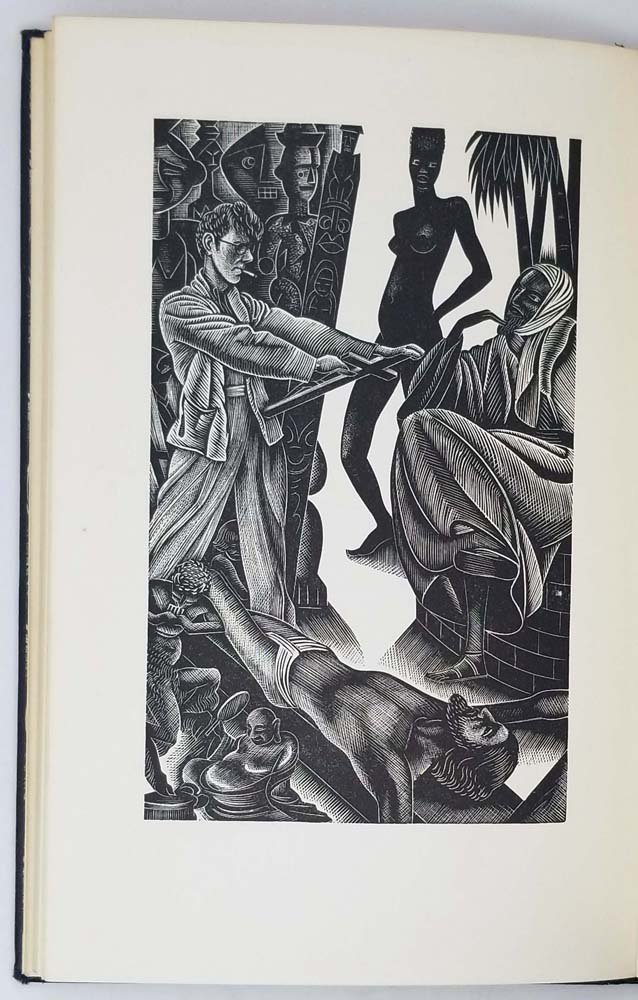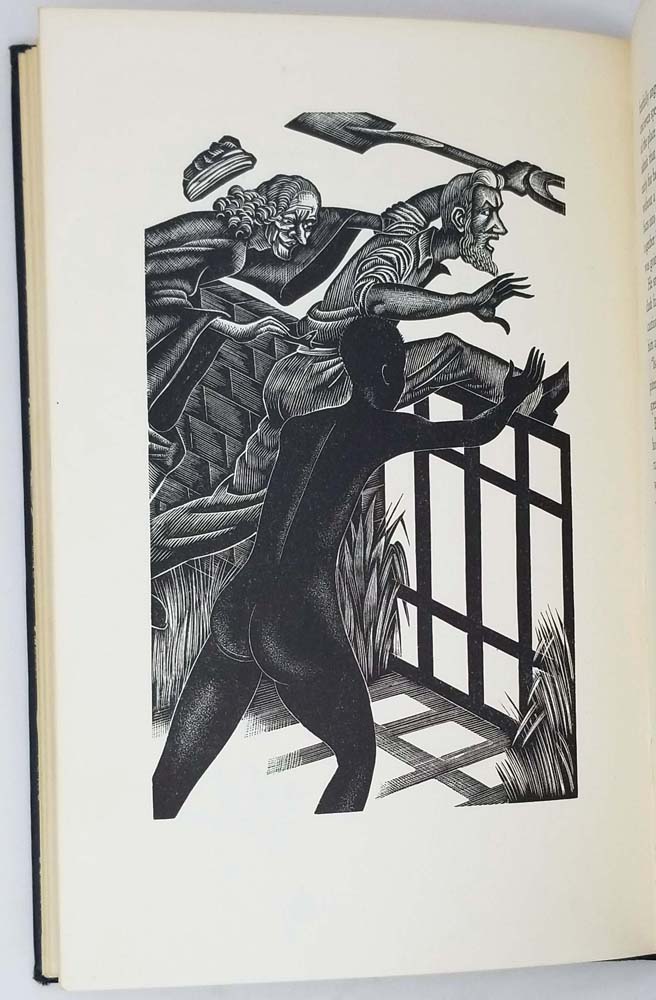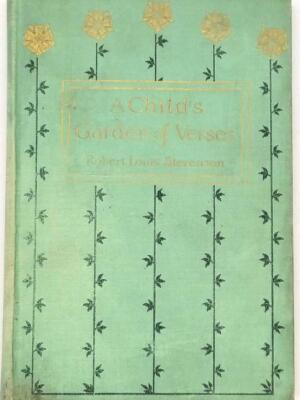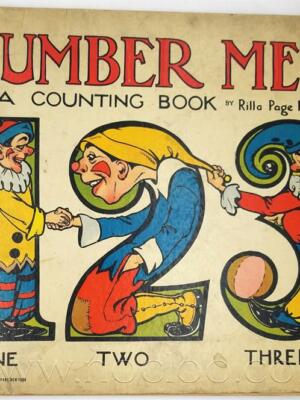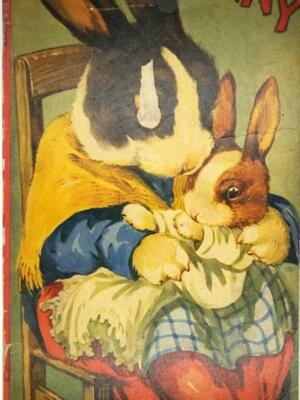The Adventures of the Black Girl in Her Search for God (1932) by George Bernard Shaw is a satirical allegory that follows an African woman’s quest for divine truth in colonial-era South Africa. Disillusioned by missionary teachings, she embarks on a journey through the veldt, encountering anthropomorphic versions of God—from a tyrannical Old Testament deity to a vague metaphysical force—each representing flawed human conceptions of religion. Shaw’s sharp wit and socialist critiques dismantle dogma, advocating for a humanist, rational spirituality.
Banned for blasphemy yet hailed as a progressive classic, this novella remains a daring challenge to institutional faith.
